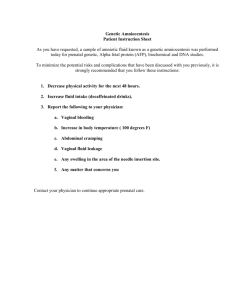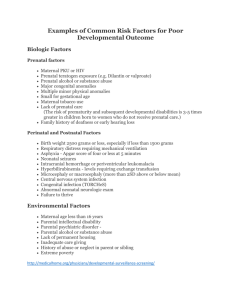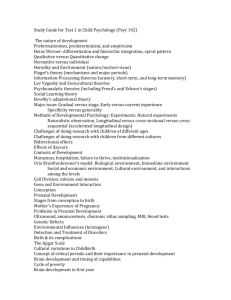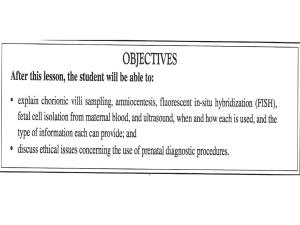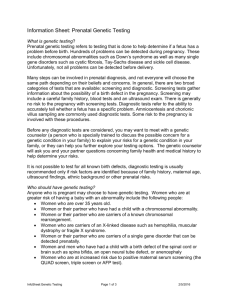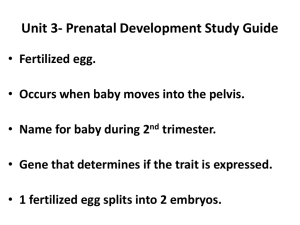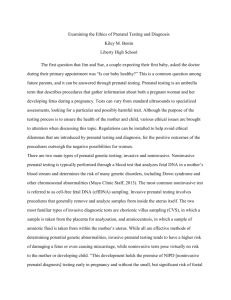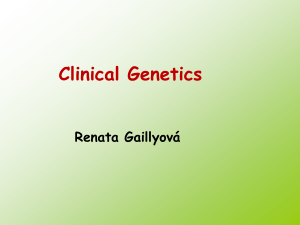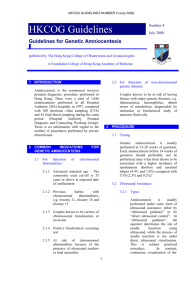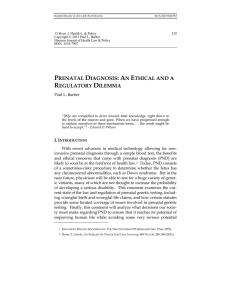Prenatal examinations for early intervention and counseling
advertisement
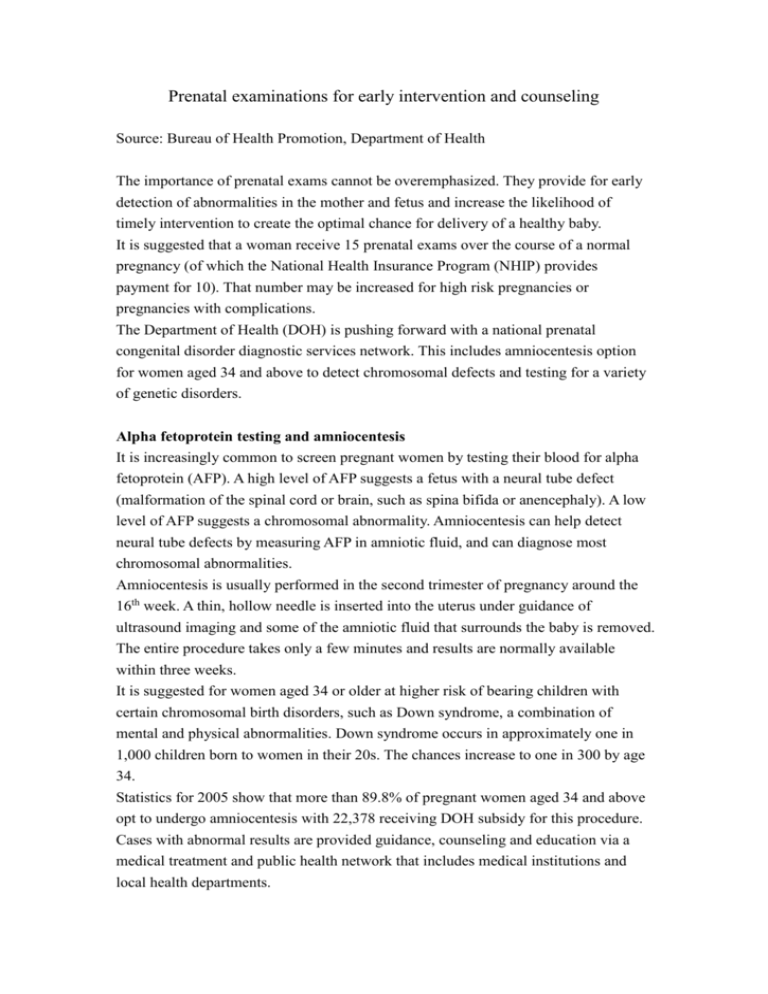
Prenatal examinations for early intervention and counseling Source: Bureau of Health Promotion, Department of Health The importance of prenatal exams cannot be overemphasized. They provide for early detection of abnormalities in the mother and fetus and increase the likelihood of timely intervention to create the optimal chance for delivery of a healthy baby. It is suggested that a woman receive 15 prenatal exams over the course of a normal pregnancy (of which the National Health Insurance Program (NHIP) provides payment for 10). That number may be increased for high risk pregnancies or pregnancies with complications. The Department of Health (DOH) is pushing forward with a national prenatal congenital disorder diagnostic services network. This includes amniocentesis option for women aged 34 and above to detect chromosomal defects and testing for a variety of genetic disorders. Alpha fetoprotein testing and amniocentesis It is increasingly common to screen pregnant women by testing their blood for alpha fetoprotein (AFP). A high level of AFP suggests a fetus with a neural tube defect (malformation of the spinal cord or brain, such as spina bifida or anencephaly). A low level of AFP suggests a chromosomal abnormality. Amniocentesis can help detect neural tube defects by measuring AFP in amniotic fluid, and can diagnose most chromosomal abnormalities. Amniocentesis is usually performed in the second trimester of pregnancy around the 16th week. A thin, hollow needle is inserted into the uterus under guidance of ultrasound imaging and some of the amniotic fluid that surrounds the baby is removed. The entire procedure takes only a few minutes and results are normally available within three weeks. It is suggested for women aged 34 or older at higher risk of bearing children with certain chromosomal birth disorders, such as Down syndrome, a combination of mental and physical abnormalities. Down syndrome occurs in approximately one in 1,000 children born to women in their 20s. The chances increase to one in 300 by age 34. Statistics for 2005 show that more than 89.8% of pregnant women aged 34 and above opt to undergo amniocentesis with 22,378 receiving DOH subsidy for this procedure. Cases with abnormal results are provided guidance, counseling and education via a medical treatment and public health network that includes medical institutions and local health departments. Prenatal genetic diagnostic testing To elevate the quality of prenatal clinical cytogenetic testing and congenital disorder genetic testing, the DOH has established guidelines and evaluation standards for testing institutions, under which it performs regular institutional inspections. Currently, 26 cytogenetic testing institutions and 15 congenital disorder genetic testing institutions have passed inspection. DOH subsidies are offered for prenatal genetic testing for seven disorders, namely thalassemia, spinocerebellar ataxis, Huntington’s disease, Duchenne muscular dystrophy, fragile X syndrome, spinal muscular atrophy and hemophilia A &B. For pregnant women with a family history of congenital disorder or for who prenatal screening shows abnormal results a subsidy of NT$2,000 is available and women from low-income families or living in remote or offshore areas can take advantage of an additional subsidy of NT$3,500. Information on abnormal karytopes, gathered during testing procedures, is entered into databases and managed by professional academic institutions that have been commissioned by the DOH.
